Main content
Voices from the Frontlines
Reporting the events of the world has always been at the core of the Βι¶ΉΤΌΕΔ's purpose. The men who helped define the Βι¶ΉΤΌΕΔ's role and reported from the global frontlines of the 20th century, from the world-changing events of 1936-1956 included pioneering reporters such as Edward Ward, Wynford Vaughan-Thomas, Richard Dimbleby, Robert Duff and Frank Gillard.
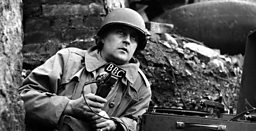
Robin Duff, Βι¶ΉΤΌΕΔ War Correspondent assigned to the U.S Forces.He is using one of the Midget recorders which have been specially develooped by Βι¶ΉΤΌΕΔ engineers for front-line reporting.
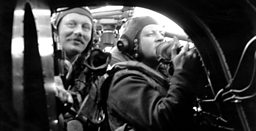
Richard Dimbleby recording his commentary on the Rhine crossing on the morning of 24th March 1945, with Stanley Maxted. The pair were reporting from one of the linked tugs and gliders.
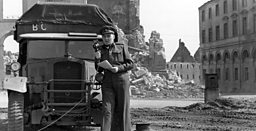
Frank Gillard recording a VE Day report from Kassel on 1 May 1945
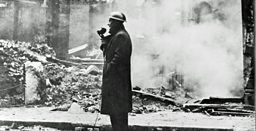
Robin Duff broadcasting a commentary on the dynamiting of burnt-out buildings, 1940.
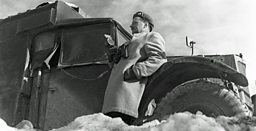
Wynford Vaughan-Thomas giving a commentary from the Βι¶ΉΤΌΕΔ recording truck in the snowy Apennines on the 8th Army Front, January 1944
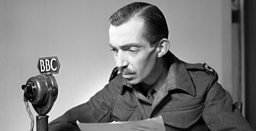
Edward Ward, Βι¶ΉΤΌΕΔ War Correspondent, who had been a prisoner of war in Italy and Germany 1941-1945.
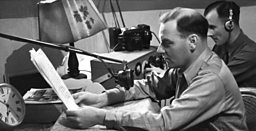
Frank Gillard, War Correspondent, reporting from a temporary Βι¶ΉΤΌΕΔ studio in a hotel attic in Bad Wildungan, Germany.
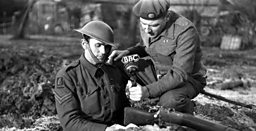
Frank Gillard, right, Βι¶ΉΤΌΕΔ War Correspondent, interviewing Corporal RB Pass on the Western Front, 24 December 1944.
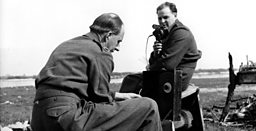
Chester Wilmot, Βι¶ΉΤΌΕΔ War Correspondent (right) and H.F.L. Sarney, recording engineer, by the River Elbe, Germany, 1945.
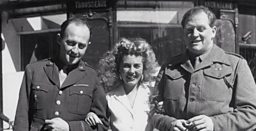
Βι¶ΉΤΌΕΔ War Correspondents Robin Duff and Richard Dimbleby in Paris with French film star Monique Rolland
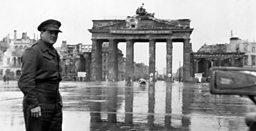
Richard Dimbleby, Βι¶ΉΤΌΕΔ War Correspondent, at the Brandenburg Gate, Berlin in July 1945.
